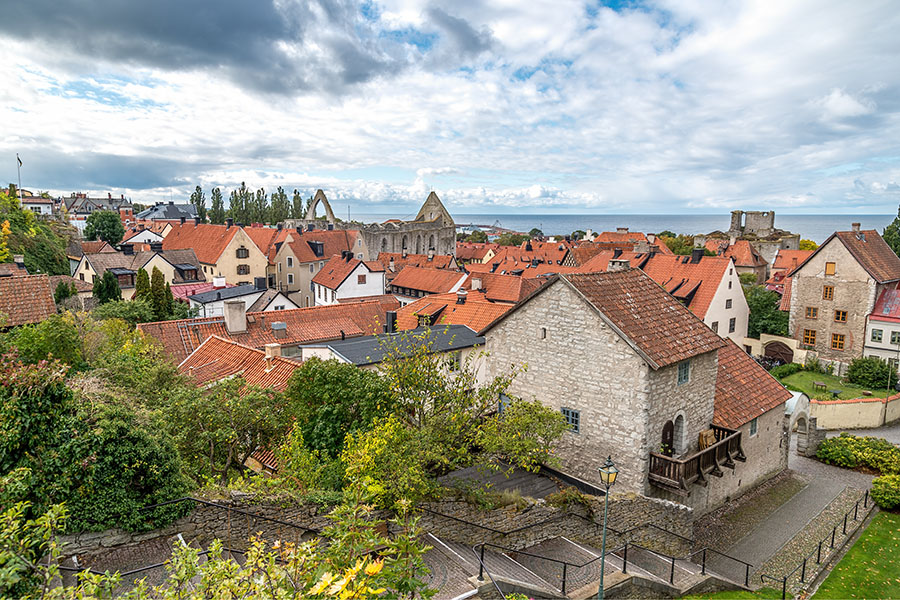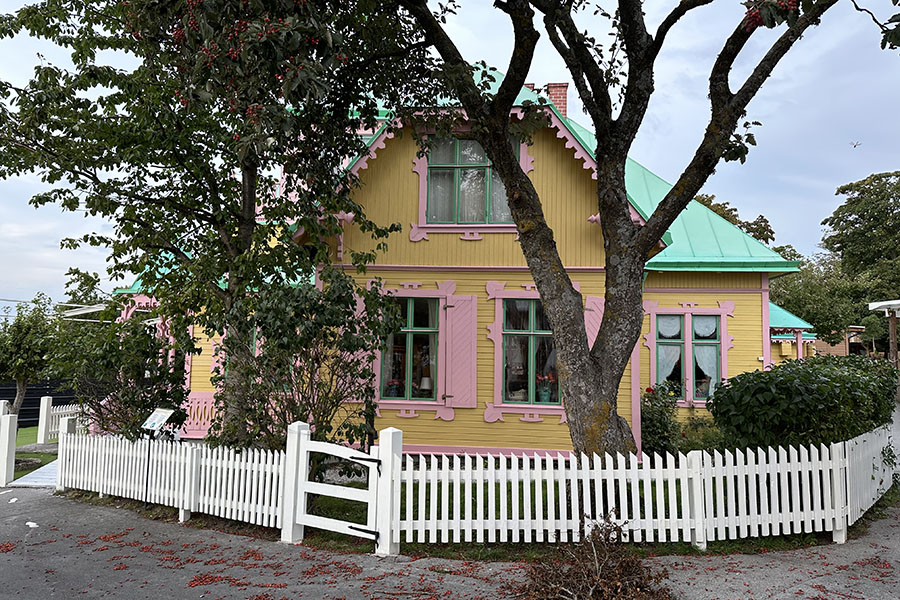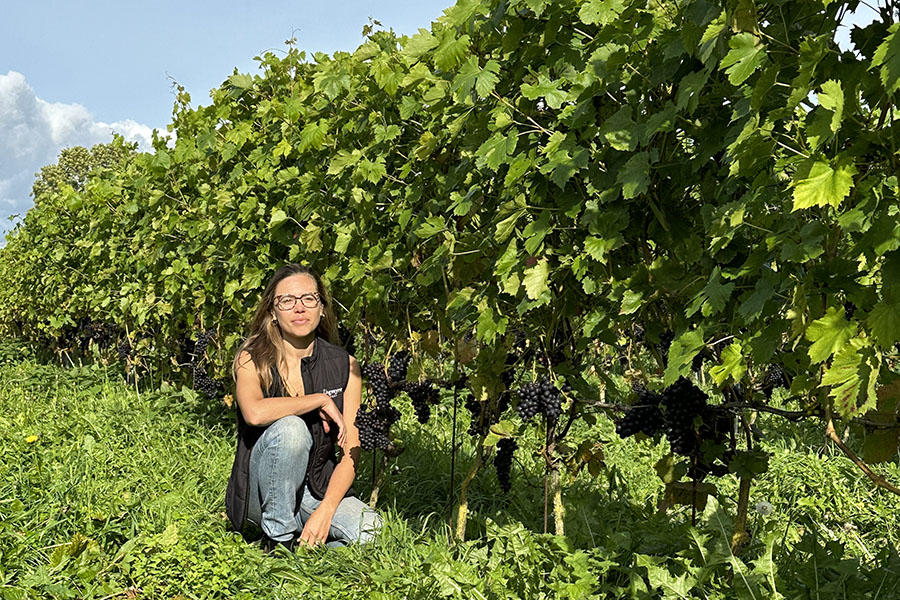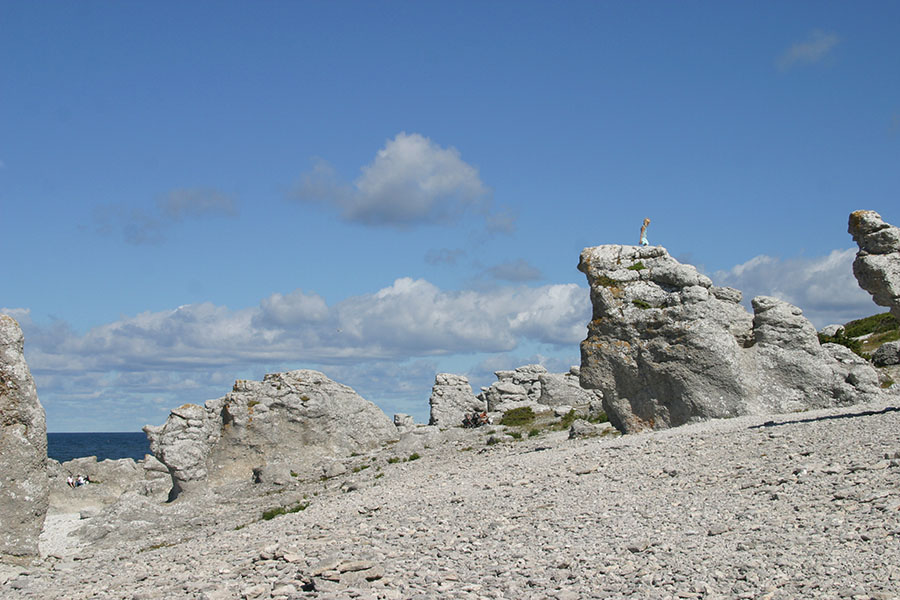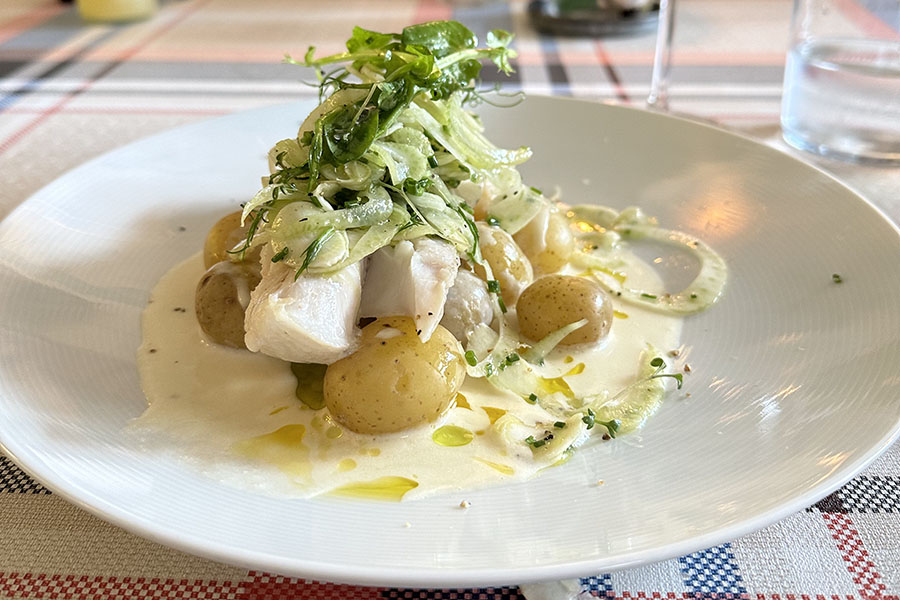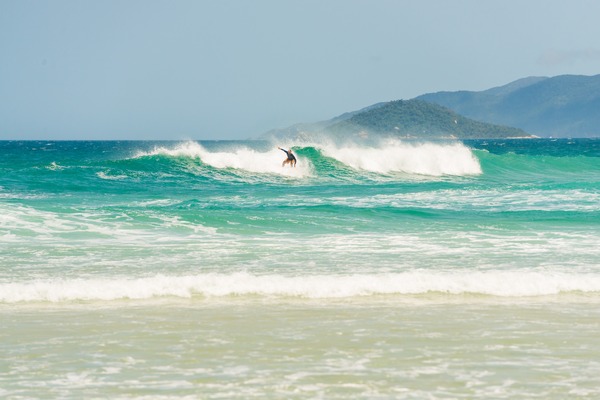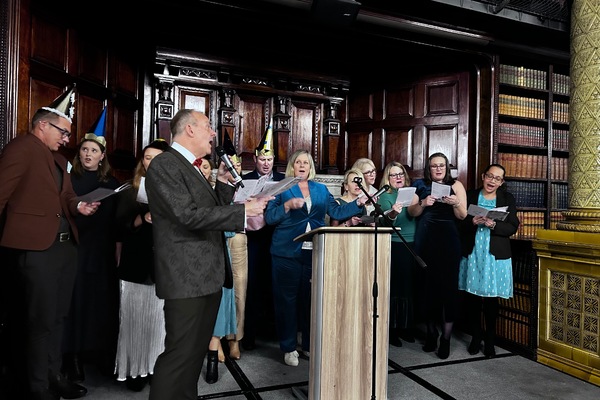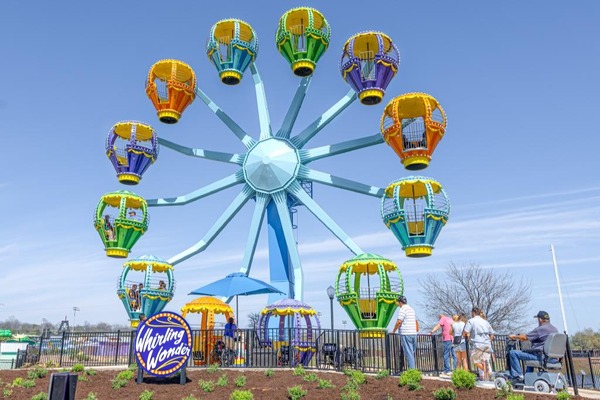The island where Sweden does slow living and organic wine best
 Aisling O'Leary
Aisling O'LearyGotland is a popular summer escape for the Swedish domestic market, but off-season the Baltic destination still has plenty of charm, finds our writer
It’s eagle hour in Gotland and word has spread among the island’s bird watchers that a greater spotted eagle has been identified. I watch as cars pull up, more people joining the small group that has gathered in the car park, binoculars and telescopes poised to look at the rare specimen – this is only the fourth time it has appeared on the island. “Oland is much bigger for birding than Gotland, but you’ll have so many people there it’s like a rock concert,” says my tour guide Sebastian Nilsson. Looking at the impromptu gig-goers in the corner, it seems like Gotland has its own scene.
While I can’t profess to being a passionate twitcher, for budding ornithologists Gotland is a great shout. With between 50 and 70 pairs of golden eagles on the island, you’d be hard pressed to find anywhere else in the world with such a dense population of the bird, while other breeds of note include great eagles, white tail eagles and great egrets, the latter just one example of new species being added to Gotland’s bird watching register due to the realities of climate change.
THE SWEDISH INFLUENCE
As Sweden’s largest island, Gotland boasts more than just eagles though. Since Covid, there has been an increase in the number of Swedes moving to the island, resulting in new restaurants, boutique hotels and start-ups. Numerous beaches are popular for surfing, the relatively flat landscape lends itself to great cycling holidays and Pippi Longstocking fans (perhaps among your more mature clients) will enjoy seeing the original house used in the films, located in the popular seaside resort Kneippbyn. Though public transport is available in Gotland, it can be slow and during the off season some routes are cancelled, which is why a car is advisable.
Our next stop is more up my street – a vineyard. Swedish wine, is that a thing? Apparently so, albeit a very slowly growing trend with just 30 commercial wine producers in the country. Owners Emma Serner and Andrea Guerra, who met working at a winery in Tuscany, decided to plant their flag in Gotland and set up Langmyre Vineri in Burgsvik, south of the island, in 2019.
“We figured let’s go to a country where it’s not that complicated to produce wine because the climate is kinder to agriculture, and where there’s fewer people doing it so we actually have a chance of breaking through,” Serner says. Now certified organic in Sweden under KRAV standards, one of the strictest eco-labelling schemes in existence, their ambitions of being fully sustainable are being realised.
While Swedish alcohol monopoly law prevents me from tasting the product on the spot, I was lucky enough to have a glass of their rosé the night before at Hotel Stelor, a “Gotlandic farmstay” as termed by owners Linus and My Strom. Comprised of two buildings – one housing the restaurant and the other the bedrooms – I feel like I’m staying at a friend’s house, due to the combination of the owner’s warmth, beautiful interiors, and some stellar farm-to-fork food, courtesy of Linus’s background in Michelin-star restaurants in Gothenburg.
For a prehistoric interlude, an hour’s drive north of Langmyre Vineri is Folhammar nature reserve, where I come across a 500-metre sea stack field standing between me and the Baltic Sea. The beach is a geological playground made up of other-worldly karst shapes that were once coral reefs under the sea.
Later that evening at Villa Alskog, a boutique hotel with a pool, 15 minutes away, I find the owners are also city transplants, engineers swapping a life in Stockholm for a life in the countryside, “a chance to do something new” says Bjorn Schlingmann. Everything on our dinner plates comes from within 10km of the establishment, including lamb sausage with beetroot and roasted butternut squash with Gotland feta.
FOLLOW THE SUN
Next morning, it’s a 45-minute drive from east to west as I travel to Visby, Gotland’s Unesco-listed 12th-century town, passing a landscape marked by birch, Baltic pine and juniper under clear blue skies.
Gotland ranks consistently in Sweden’s top three for the most hours of sunlight and, with summer temperatures averaging 24 degrees, it could be presented as an original alternative to a Mediterranean island. Though predominantly a popular domestic summer destination for the Swedes, VisitSweden reports that the number of UK visitors to the Gotland website doubled over the summer period while Baltic cruises now stop at Visby in place of St Petersburg.
While I am travelling out of season, there is still a lively buzz to Visby with people sitting outside restaurants and cafes soaking up the September sunshine.
My hotel here is the quietly stylish Kalk Hotel overlooking the town’s cobblestoned streets. For clients who enjoy seafood, you could recommend Bakfickan and, for those seeking a more traditional Swedish meal, Lindgarden is renowned for its Gotlandic touch.
When I rise the next morning to take a dip in the Baltic Sea under moody skies, I am not alone in taking advantage of what this enchanting isle provides. The other Swedish larks and I head into the day brimming with energy, like powerful eagles circling in the sky.
Book it: Sunvil offers seven nights’ B&B at Clarion Hotel Wisby from £1,320pp, based on two adults sharing, flying from Edinburgh, sunvil.co.uk; while Best Served Scandinavia offers a six-day Gotland and Stockholm fly-drive package from £1,470pp, best-served.co.uk
Sign up for weekday travel news and analysis straight to your inbox

Aisling O'Leary
Supplier Directory
Find contacts for 260+ travel suppliers. Type name, company or destination.
